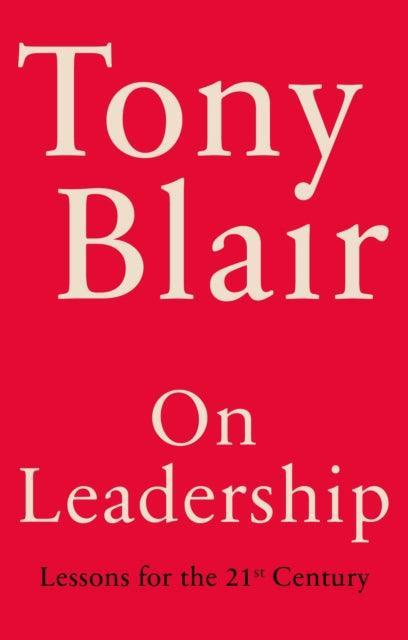THE CLEEVE BOOKSHOP LTD
On Leadership : Lessons for the 21st Century
On Leadership : Lessons for the 21st Century
Couldn't load pickup availability
by Blair, Tony | Politics & government
Published 05/09/2024 by Cornerstone (Hutchinson Heinemann) in the United Kingdom
Hardback | 320 pages
240 x 156mm | 750g
Today, more than ever before, the quality of a country’s governance and leadership determines whether it will succeed or fail.
The world over, there are nations with roughly the same populations, the same resources, the same potential; yet some will flourish while others flounder. Why? Quite simply, some have leaders who understand the principles of good government, and some don’t.
Tony Blair learnt the precepts of governing the hard way: by leading a country for over ten years. In that time he came to understand that there were certain key characteristics of successful government that he wished he had known when he started. Since then, he has seen how, though circumstances and contexts differ enormously, the challenges of governing are basically the same in any nation, whatever its stage of development. Not just that: there are also decades of political experience on which modern leaders can draw. Unfortunately, while practical guides to other professions abound, governing is treated as a dimension of politics, not as an art and science in its own right, and practical, non-partisan advice is consequently hard to find.
Now Tony Blair has written the manual on political leadership that he would have wanted back in 1997, sharing the insights he has gained from his personal experience and from observing other world leaders at first hand, both while he was in office and since, through his Institute’s work with political leaders and governments globally.
Written in short, pithy chapters, packed with examples drawn from all forms of political systems from around the world, the book answers the key questions: How should a leader organise the centre of government and his or her own office? How should he or she prioritise and develop the right plan and hire the right personnel, cope with unforeseen events and crises, and balance short-term wins with long-term structural change? What’s the best way to deal with an obstructive or inert bureaucracy, to attract investment, to reform healthcare or education, and to ensure security for the citizen? And how should governments harness the massive opportunities of the 21st- century technological revolution?
Share


